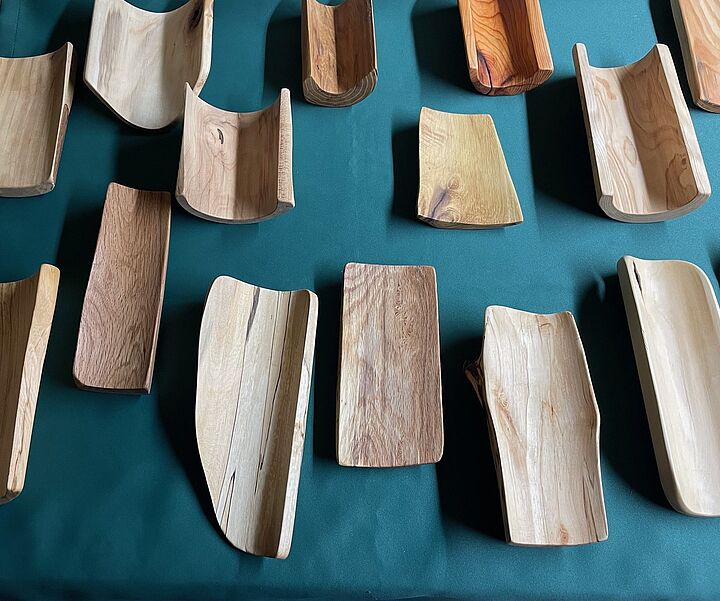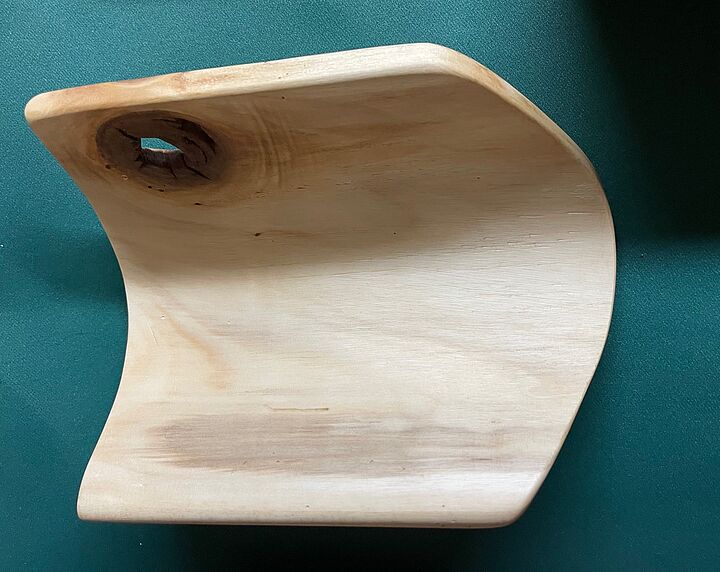Measure: Switch to more sustainable advertising media
Mugs, drinking bottles or USB sticks imprinted with logos, T-shirts, key rings, gym bags or pens with well-placed lettering. Many of us have been handed such things at trade fairs and conferences or received them as a thank you for a contribution. Which of these promotional items we actually use varies for each of us. One person likes the water bottle, another finds it impractical. The T-shirt may not fit properly and we can no longer remember the taste of the jelly beans we pocketed at the time. Some of the promotional gifts have since ended up in the bin, but their plastic packaging has certainly gone.
For universities, promotional items are a means of communication. They strengthen relationships with prospective students and cooperation partners, show them appreciation and represent our values. There are items that are bought in large quantities at low cost and handed out at trade fairs, information days or major conferences. Experts call them "giveaways". These include pens, bags, pouches, writing pads, key rings, sweets, etc. Items that are used as gifts for guests or as thank-you gifts include cut flowers, mugs, notebooks or a bottle of wine, provided their purchase price complies with compliance rules.
With a revised selection of promotional items, TH Wildau wants to leave a positive impression and make its commitment to sustainability more visible. Starting in early summer 2024, we will ensure that promotional gifts are as useful as possible and at the same time meet one or more social and environmental sustainability criteria. Orders for these items can be placed with the ZfHK as early as June 2024.
What makes promotional items more sustainable?
If products are manufactured in the region, the transportation routes to TH Wildau are short and generally cause fewer greenhouse gas emissions than products with long delivery routes. They are even more sustainable if the ingredients are sourced locally. Products that are made from renewable raw materials or recycled materials or can be recycled after use also fulfill a sustainability criterion. It is important that products have been produced at fair wages and that it can be proven that no children were involved in their manufacture. If components of promotional items are manufactured in other countries, appropriate documentation should prove the latter conditions.
As a first measure, we want to ensure that the promotional items still in stock are used. When purchasing new promotional items, TH Wildau has decided to reduce the number of different items and focus on pens and writing pads for events with large numbers of visitors. Surveys with students have shown that despite the ubiquitous use of smartphones, pens are still in demand. By reducing the number of gift items, we are reducing our consumption of resources in this small area of activity.
We purchase the pens from a company based in Brandenburg. They are made from recycled plastic that complies 100% with the certified Global Recycle Standard (GRS). The pen supply chain does not include any companies that violate human rights. The lead is manufactured in Germany. The pencils are FSC® certified and tested by LGA/TÜV Rheinland.
We advertise without snacks. The eating habits and preferences of prospective students are diverse. A single food product no longer reliably meets the tastes of the majority and does not leave a lasting impression. By eliminating snack products, we are also helping to reduce plastic waste during our events.
For gifts to speakers and hosts, we rely on ingredients and manufacturers from the region. These include wooden bowls, honey, herbal teas and soaps that are produced with local ingredients in the Dahme-Spreewald district and bear the TH Wildau logo. Members of the university can choose suitable gifts for their collaboration partners from this range of gift items. We use paper instead of plastic for the packaging. Those who still wish to give cut flowers are welcome to do so. However, we advise givers to consider the transportation route of their recipients. Some people may be happier to receive a jar of honey or a packet of herbs than a bouquet of flowers that may not survive a train or plane journey unscathed.




